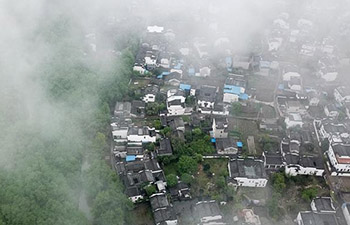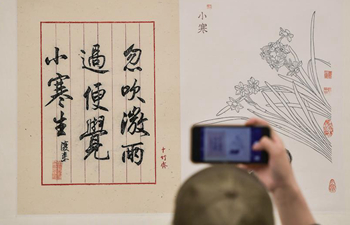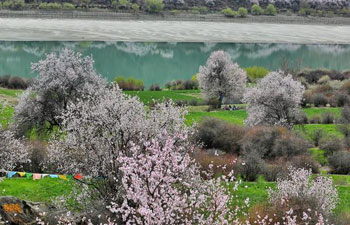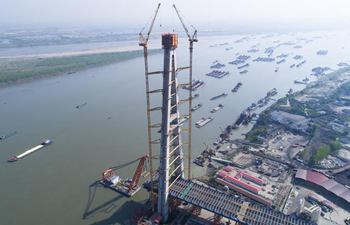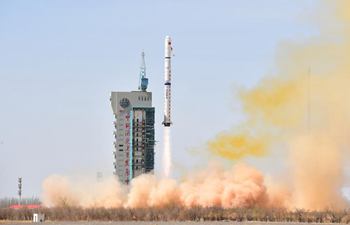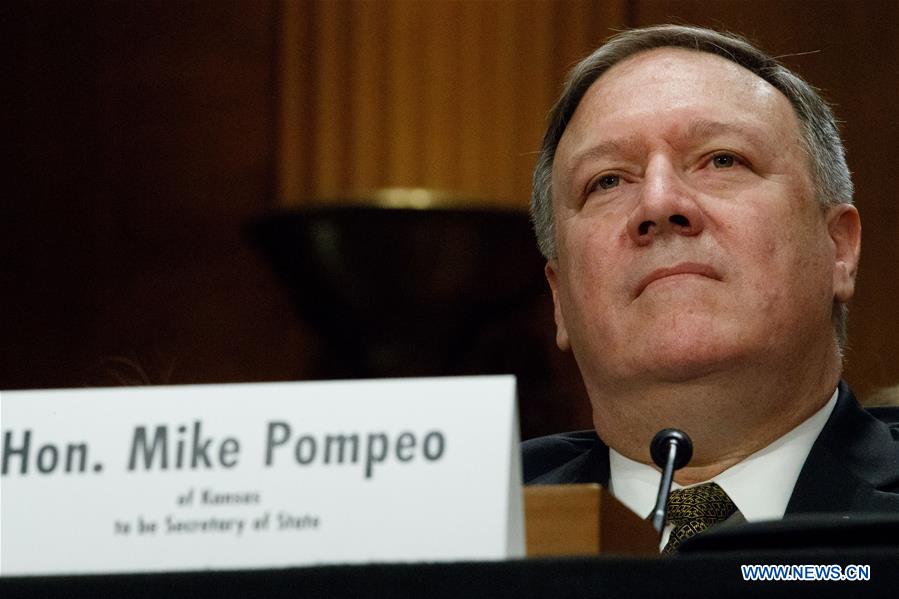
United States Central Intelligence Agency (CIA) Director Mike Pompeo testifies before the Senate Foreign Relations Committee for his nomination to become the secretary of state on the Capitol Hill in Washington D.C. April 12, 2018. (Xinhua/Ting Shen)
by Matthew Rusling
WASHINGTON, April 14 (Xinhua) -- Former CIA Director Mike Pompeo's next role as the new U.S. secretary of state is likely to see a more confrontational U.S. foreign policy, despite Pompeo's softened tone on some issues during his confirmation hearing in Senate, U.S. experts said.
Christopher Galdieri, assistant professor at Saint Anselm College, observed that Pompeo's nomination comes at a time when Trump has replaced a number of top officials to weed out different voices in his administration.
"I think Pompeo generally lines up with Trump's outlook, which likely means a more bellicose foreign policy and a tendency to see force not as a last resort but one among several alternatives for addressing international crises," Galdieri told Xinhua.
"As a result, I'd expect places that are already warm spots on the map to become hotter, at least in the short term. With Trump and Pompeo reinforcing each other, it's tough to see room for a cooler head to prevail," he added.
"U.S. policy is likely to become more confrontational under Pompeo," Brookings Institution senior fellow Darrell West told Xinhua. "He is quite hawkish in his attitudes and feels America should take a tough stance on foreign policy."
West said Pompeo is likely to encourage Trump's "aggressive impulses".
West also said things could heat up between the United States and the Democratic People's Republic of Korea (DPRK).
"Pompeo does not want that country to have nuclear weapons and the capacity to launch them at the United States. He is likely to encourage very hard bargaining there and may be supportive of tough action," West said.
Troy Stangarone, senior director at the Korea Economic Institute, said Pompeo is likely to push for talks to move quickly and to dismantle both Pyongyang's nuclear weapons programs and missile programs.
The man himself has ruled out a regime change in the DPRK.
"I have never advocated for regime change," Pompeo said at the Senate hearing Thursday, voicing optimism that the a meeting between Trump and DPRK leader Kim Jong Un "will set us down the course of achieving a diplomatic outcome that...America and the world so desperately need."




